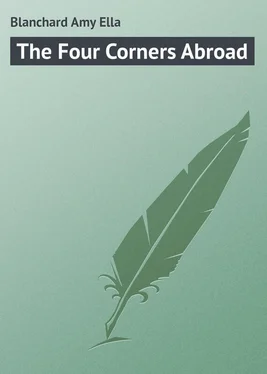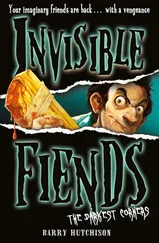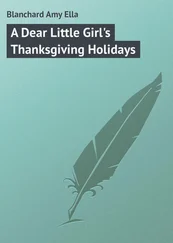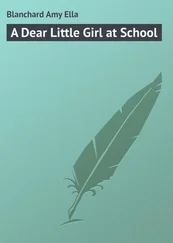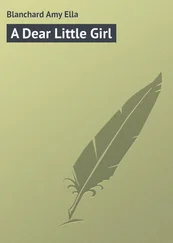Amy Blanchard - The Four Corners Abroad
Здесь есть возможность читать онлайн «Amy Blanchard - The Four Corners Abroad» — ознакомительный отрывок электронной книги совершенно бесплатно, а после прочтения отрывка купить полную версию. В некоторых случаях можно слушать аудио, скачать через торрент в формате fb2 и присутствует краткое содержание. Жанр: foreign_prose, на английском языке. Описание произведения, (предисловие) а так же отзывы посетителей доступны на портале библиотеки ЛибКат.
- Название:The Four Corners Abroad
- Автор:
- Жанр:
- Год:неизвестен
- ISBN:нет данных
- Рейтинг книги:5 / 5. Голосов: 1
-
Избранное:Добавить в избранное
- Отзывы:
-
Ваша оценка:
- 100
- 1
- 2
- 3
- 4
- 5
The Four Corners Abroad: краткое содержание, описание и аннотация
Предлагаем к чтению аннотацию, описание, краткое содержание или предисловие (зависит от того, что написал сам автор книги «The Four Corners Abroad»). Если вы не нашли необходимую информацию о книге — напишите в комментариях, мы постараемся отыскать её.
The Four Corners Abroad — читать онлайн ознакомительный отрывок
Ниже представлен текст книги, разбитый по страницам. Система сохранения места последней прочитанной страницы, позволяет с удобством читать онлайн бесплатно книгу «The Four Corners Abroad», без необходимости каждый раз заново искать на чём Вы остановились. Поставьте закладку, и сможете в любой момент перейти на страницу, на которой закончили чтение.
Интервал:
Закладка:
"Isn't it solemn?" whispered Nan to her sister.
Just then with the chanting of the priests was mingled the song of a canary, then another chirped up, and a third joined in, so that all through the service the little songsters did their part.
"You will see the danza prima here," Miss Dolores had told them. "It is the most ancient and primitive of the Spanish religious dances. It can hardly be called a dance, in fact. And the ramas ? They are huge pyramids on which are hung circular loaves of bread, and which are adorned with flowers and branches of green; that is why they are called ramas . They indicate the fruits of the harvest."
So when the moment came for the young men of the village to bear forth the ramas , the girls watched eagerly to see the body of maidens, in aldeana dress, taking a peculiar step backward, always backward, and beating their tambourines and drums while they sang a monotonous chant. The figure of the Virgin, in dazzling array, preceded the ramas , and as the procession issued into the open air again the rocket-bombs went up again. Women carrying tall lighted candles brought up the rear of the procession which moved around the church. The ramas were set up again outside while the Virgin was carried back to her shrine and then the real fiesta began.
"Almost all the fiestas have some special feature, some religious dance to distinguish them from one another," Miss Dolores told the girls. "At Llanes they have a very old dance called the danza peregrino , or dance of the pilgrims which is supposed to date back, no one knows how many centuries, to the days of the pilgrims, and the cockle-shells and staves are still conspicuous in the dress the children wear when they give the dance. At Ribadasella they have a procession of boats upon the water, which is quite pretty."
"I'd like to see that," said Nan.
"Perhaps we shall be able to. Now, we will wander about a while to see the people and the booths before the dancing begins."
"Why, it's just like a fair," remarked Mary Lee. And indeed, to see the stands where cakes, beer and wine were offered for sale, to see the women squatting on the ground in front of baskets of nuts or fruit, to see the merry-go-round and the merry crowd made one think that it might be anything but a religious occasion.
"The dancing has begun," cried Mercedes. "You must come." She urged the girls forward to where upon the grass two lines had formed, the men opposite the girls. A man with a violin and a woman with a drum were beginning the music of the jota , and presently Nan found herself opposite Don Antonio while Mary Lee had Mercedes for her vis-à-vis . Don Antonio was a tall, serious-looking lad of nineteen, but when with arms aloft, he snapped his fingers, and took graceful steps, he seemed quite a different person from the grave young man who had ventured but a few remarks to the American girls. Nan soon caught the spirit of the dance, while Mary Lee, under the teaching of Mercedes, was presently snapping her fingers and taking her steps with the best. It was energetic exercise and they were rather tired when the last notes of the jota ended.
"Now let us go and have some cider and cakes," proposed Mercedes.
"Cider? Do you have cider here?" asked Nan.
"Oh, yes," was the reply. "In Asturias we raise many apples, and cider is a favorite drink. I see Antonio has supplied us with cakes. We will go over there under the trees and have our feast and then we will walk down by the sea."
"I am so glad to see so many in peasant dress. Why don't the men wear it?" Mary Lee put the question.
"So few young men are here. Most of them have gone away and will come back Americanos when they have made money."
" Americanos? "
"Yes. They go to Buenos Ayres, to Mexico, to Venezuela, and when they come back they do not wear any more the aldeana dress, and they are always called Americanos ."
"And what are we?" Nan put the question, a little puzzled to know how she and her sister would be distinguished. If they were not Americans what could they be?
"Oh, you are Inglesas ," Mercedes told her.
"Because we speak English, I suppose." Nan was not quite sure that she liked this method of classification.
"Oh, yes, that is why, certainly," returned Mercedes. "See there is a man over there wearing the Asturian cap, the old man with a long peaked cap which hangs down one side."
"And so you don't call us Americanos ," Mary Lee returned to the subject, after looking at the man with the peaked cap.
Mercedes smiled and shook her head.
"I always forget there is any America but the United States," said Mary Lee, "but of course South Americans have just as much right to be called so as we have. Dear me, do see that poor deformed creature, and there is another." She stood appalled and again Mercedes smiled.
"They always come to the fiestas , and they are not so deformed as they appear though they must be truly so, and must show that they are else they might be taken for impostors." She stopped to give each of the supplicants a copper coin. "The big coppers are perronos or the big dogs," she explained, "the little ones, perrinas , or little dogs," and each of the Corner girls took a perrono from her purse to put into the outstretched hands.
"Ah, there are the Gallegos; you will like them." And Mercedes hurried them forward to join a crowd gathered around two women, one with a guitar, the other with a tambourine. They were saucy, mirthful looking creatures who turned knowing eyes upon the strangers and after whispering to one or two of the nearest bystanders, broke forth into a fresh song which caused much amusement.
"What are they saying?" asked Nan, as she saw all eyes turned in her direction.
Mercedes laughed. "They are singing about you. They say you are like a clavel with your pink cheeks, and that Mary Lee is a golden bird. They say you should be in the queen's court and that your husbands will be sure to occupy high places."
"Oh, dear!" Nan looked this way and that, feeling very conscious, to the delight of the audience. To be made the subject of improvisation seemed to the girls a very unusual experience, but presently they realized that it was a very common thing here in Spain, that it was meant as a compliment, so when the tambourine was passed around each girl dropped in her offering and the Gallegos smilingly started in a new direction.
More dancing and more feasting. The grass was trodden into the dust; the piles of cakes were perceptibly diminished; more people were arriving. The train brought numbers from the nearest towns and villages; carriages drove up with occupants dressed in their best. There were two sets of couples for the next jota in which even small children in the aldeana dress joined, all being perfectly familiar with the step.
An Andalusian with a sweet worn voice trolled out his ballads in a minor key at one end of the grounds; at the other end a blind violinist drew his bow raspingly and in cracked tones sang a wild Asturian melody. The lame beggars hopped hither and thither, the paralyzed ones crawled nearer, the maimed accosted each newcomer.
Soon the bright daylight began to fade. Long shadows crept across the grass, the ancient church, ten centuries old, grew grayer in the failing light. "One more look at the sea and then we go," said Mercedes. So they wandered down to the rocky shore where great crags rose on every side. Beyond these sparkled the Cantabrian sea which, softening the air, made it possible for chestnuts and orange trees, palms and apple trees, to live in neighborly fashion.
"We have flowers in our garden the year around," Mercedes told them, "and even when there is snow on the mountains it is not so very cold here."
Читать дальшеИнтервал:
Закладка:
Похожие книги на «The Four Corners Abroad»
Представляем Вашему вниманию похожие книги на «The Four Corners Abroad» списком для выбора. Мы отобрали схожую по названию и смыслу литературу в надежде предоставить читателям больше вариантов отыскать новые, интересные, ещё непрочитанные произведения.
Обсуждение, отзывы о книге «The Four Corners Abroad» и просто собственные мнения читателей. Оставьте ваши комментарии, напишите, что Вы думаете о произведении, его смысле или главных героях. Укажите что конкретно понравилось, а что нет, и почему Вы так считаете.
